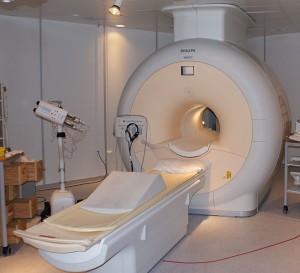 Magnetic Resonance Imaging or MRI is the technique that involves magnetism and radio waves for imaging of the parts of the human body that cannot be imaged properly by other methods. It is a medical process in which large and controlled magnetic equipment is used to scan human body and generate visual data like X-ray films. People who have already undergone the process must have experienced most part of their body being inserted into huge open cylindrical equipment, which is the MRI scanner.
Magnetic Resonance Imaging or MRI is the technique that involves magnetism and radio waves for imaging of the parts of the human body that cannot be imaged properly by other methods. It is a medical process in which large and controlled magnetic equipment is used to scan human body and generate visual data like X-ray films. People who have already undergone the process must have experienced most part of their body being inserted into huge open cylindrical equipment, which is the MRI scanner.
Since the process involves magnetism, ferromagnetic articles such as anyeurism clips, shell fragments, surgical prostheses, etc. may distort MRI results and compromise safety too. In fact, the condition could even get life-threatening in case of critical things like pacemakers. While these cases are noteworthy, people have recently raised their concern regarding the influence of MRI scans on dental implants.
Theoretically, dental implant can cause problem during the procedure and can even injure the patient. Ceramic implants in which ferromagnetic substances are not used are totally safe. However, metal implants or ceramic implants with metal posts are likely to get impacted by magnet. In fact, some implants have magnet incorporated to them to provide firmness. MRI scan can demagnetise such dental implants, which would then require surgical correction.
In reality, most implants have posts and artificial roots that merge with the bone and provide adequate support to counter the forces of MRI scan. However, patients are required and recommended to provide every detail to doctors and MRI experts so that the situation can be appropriately evaluated.
Picture credit: Wikipedia
The article has been brought you by Dentist Valeria Lawrence, DDS